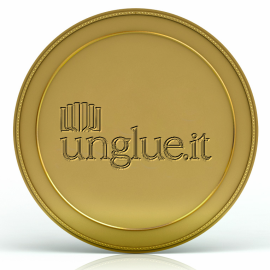 Back in May, I wrote that we’re working on a new version of unglue.it, designed to broaden the range of books we can unglue. The main concept we’re adding is “Buy-to-Unglue”.
Back in May, I wrote that we’re working on a new version of unglue.it, designed to broaden the range of books we can unglue. The main concept we’re adding is “Buy-to-Unglue”.
The basic idea behind “Buy To Unglue” is that the rights holder sets a sales revenue target, and when the target is met, the book becomes unglued. But the details of how to make this kind of campaign work are a bit tricky.
Here are some issues we’ve had to think about:
- What happens towards the end of a campaign? For example if a book is priced at $50 and the sales target is $6,000, will the last few copies sell, or will people wait for someone else to put the book over the top?
- What happens if the rights holder wants to change the per-copy price? Should they be allowed to raise the price? should they be able to lower the price for a week?
- How long should the campaign last? If a book doesn’t sell, can the campaign be called off?
- If a campaign has a limited term, what happens in the last few weeks? If the campaign fails, does the ungluing campaign revenue have any effect? Should the purchasers/campaign supporters get some sort of refund?
We struggled with triggers and conditions, thresholds and price limits, contingent payments and holdbacks, but it seemed to be getting too complicated. Finally, we came up with the idea of the “Dated Creative Commons” license and things started to fall into place. A Dated Creative Commons license is just a Creative Commons license with an effective date in the future. What’s hard for us to know is whether this idea translates well, whether it’s easy for non-copyright-nerds to understand.
So this is where you can really help out. I’ll try to explain it, and you tell us if it makes sense to you.
Let’s take the example of a $50 book and a $6000 campaign. 120 copies would need to be sold to unglue the book. Let’s suppose the rights holder is willing to give it a “Creative Commons Date” 10 years in the future. The sales campaign starts September 1, 2013, and if no copy is ever sold, The Creative Commons license goes into effect on September 1, 2023. But for every copy sold at $50, the Creative Creative Commons Date advances by 1 month. The CC Date for the first copy sold through unglue.it would be August 1 2023. The 12th copy gets a Creative Commons Date of September 2022. The 60th copy sold gets a creative commons date of September 1, 2018. and so on, until the advance of time meets the Creative Commons date, and the book becomes unglued.
If a campaign has to end short of the target, so be it. But whatever advance of the Creative Commons date has been achieved by the campaign remains in effect.
So each campaign has two core parameters, the revenue target and the initial ungluing date. The per copy price can change based on the book’s sales profile. Different versions could have different prices. Appropriate choices for the campaign parameters should be able to accommodate almost any type of book. Every purchase through unglue.it would cause a measurable, advertised advance of the Creative Commons date. Every purchase would generate immediate income for the rights holder, and immediate availability for the purchaser.
Does this make sense to you? Please let us know.
Oh, the system makes sense all right. Only problem with it, rights owners will immediately ask: “so, our book becomes free under a creative commons license even if nobody buys is during your sales campaign?”
Yes, on the default CC date, whenerver that is. It could be 100 years away, if the rights holder feels that’s best for them.
IMHO, this idea is interesting and creative, but not intuitive or easy for non-copyright nerds to understand. I guess you can try it and pivot if it is too complex.
I’ve come around to the point of view that if a consumer needs to understand something, it will never work. So our challenge is to present the campaign as something ordinary and familiar and when the consumer achieves understanding it will be a delight rather than a barrier.
[…] blog.unglue.it […]
This is awesome. I don’t currently make any money from creative work (well, not directly), but like many people I have my dreams…. But I’m also very keen on enabling and supporting open information and sharing culture. This model resolves the dilemma quite nicely, and creates a solution for people like me who might want the option to participate in an ‘ungluing’ of their own work right from the moment it is published.
Some people will struggle with the concept, but personally I think it’s pretty straightforward. It could easily be explained with a 30 second video or a simple diagram.